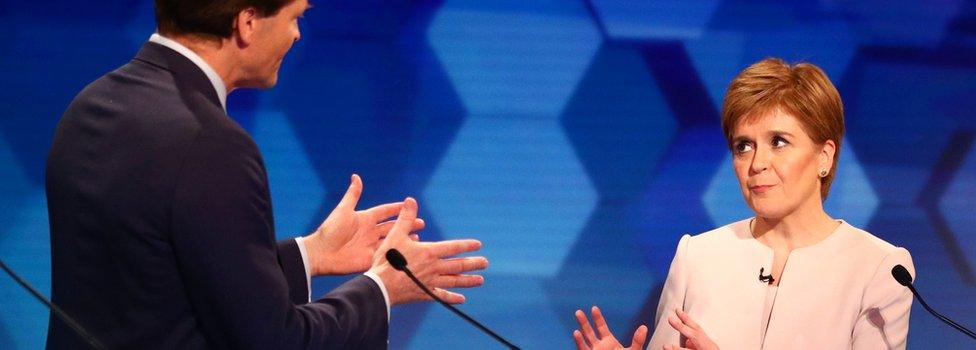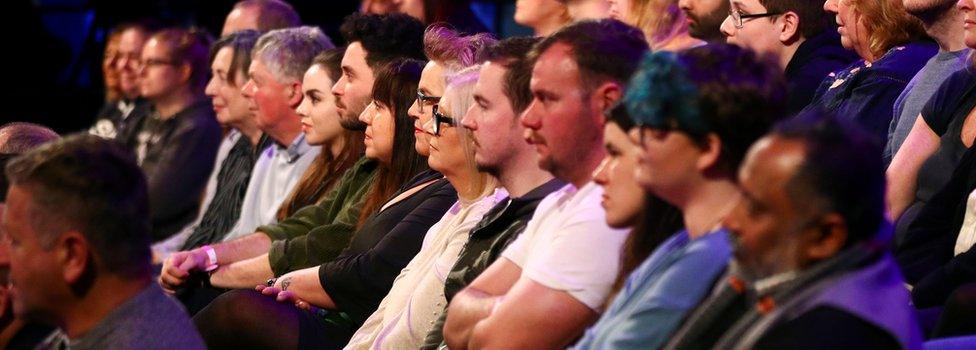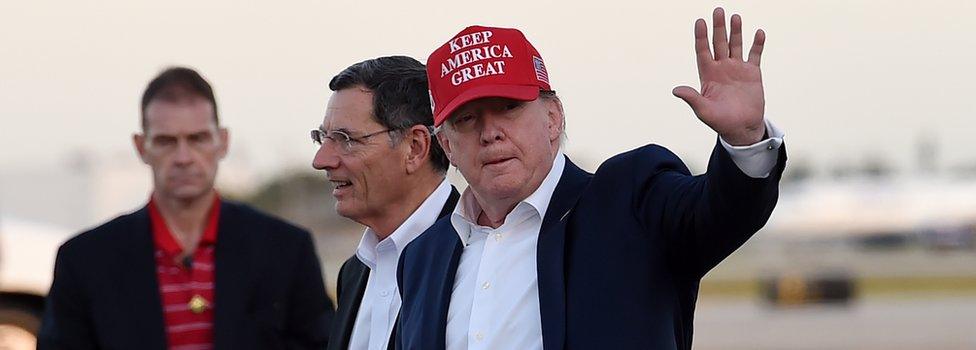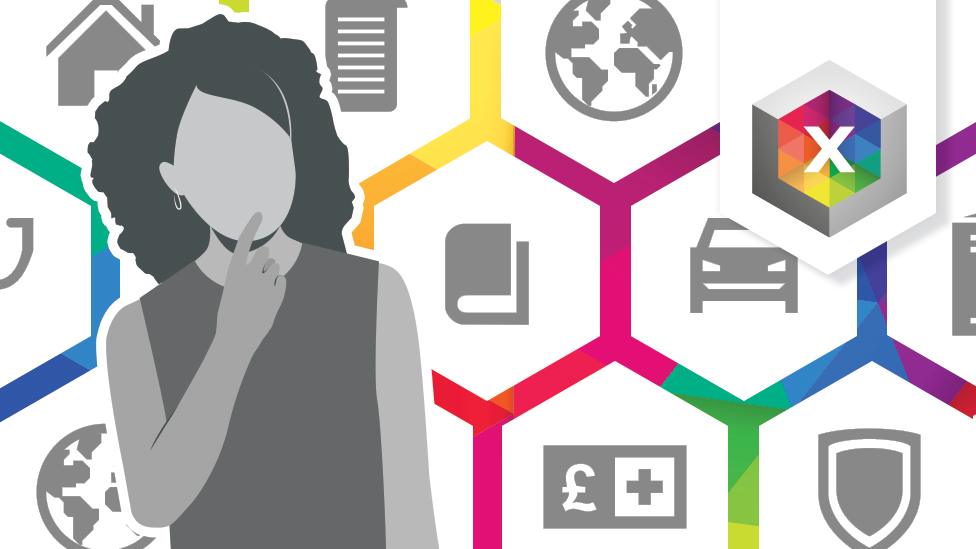BBC election debate: Five things you might have missed
- Published
Key moments from the seven-way BBC election debate
The latest election debate saw figures from seven political parties square off for the first time on television this election campaign. Here are some of the key moments.
1. Sparks flew over NHS claims

Tempers frayed over the future of the health service, which has been a big theme during the election campaign.
Labour's Rebecca Long-Bailey reprised her party's claim that the NHS is under threat from a post-Brexit trade deal with the US, saying initial trade discussions showed services would be "on the table".
The SNP's Nicola Sturgeon backed her, as did the Green Party's Caroline Lucas.
But Chief Secretary to the Treasury Rishi Sunak said the NHS was "not for sale," and accused Labour of peddling a "conspiracy theory".
The Brexit Party's Richard Tice then took things up a notch, branding Labour's claim "ludicrous," and accusing the party of "scaremongering". He got a short round of applause when he railed against drugs waste in the NHS.
Ms Long-Bailey then was asked to defend a claim in a Labour email to supporters that patients could face a five-figure bill for cancer treatment in future. As she was answering the question, Mr Tice spoke over her, saying: "No one's going to privatise the NHS [...] it's rubbish."

Catch up on the debate
LAURA KUENSSBERG: Five against two
FULL PROGRAMME: Catch-up on iPlayer
VIDEO: Watch the best bits
AS IT HAPPENED: The debate live
REALITY CHECK: The claims from the debate
2. The audience was fairly subdued

In the first televised debate of the campaign, between Boris Johnson and Jeremy Corbyn, both were subjected to calling out and laughter from the audience, particularly over the issues of trust and their position on Brexit. In last week's BBC Question Time debate, there were also some difficult audience questions.
This time around, the audience was noticeably quieter.
As might be expected, the mood at the start of the debate was fairly sombre, as politicians and the public reacted to the London Bridge attacks earlier in the day.
But things didn't get much louder from then, with the various interventions garnering little scorn or applause.
3. We learned who would press the nuclear button
Mixed answers on whether representatives would use nuclear weapons
It's a classic election-time question: would the politicians, or their party leaders, retaliate in kind if the UK were under nuclear attack?
Caroline Lucas, Plaid Cymru leader Adam Price, and the SNP leader Nicola Sturgeon all ruled it out.
The Brexit Party's Richard Tice said he would do so, after "careful consideration".
Rishi Sunak, Jo Swinson and Rebecca Long-Bailey also said they would, if circumstances required.
4. They brought their families into it
Several of the politicians backed up their policy positions with anecdotes about their loved ones.
Adam Price worried that his 84-year-old father could wake up on 13 December to the 11th Conservative government of his lifetime ,despite never having voted for the party.
Jo Swinson praised her father for teaching her "always to ask questions, to challenge the way things are".
And Rishi Sunak praised his seven-year-old daughter, a "climate-change champion" who "turns off all the lights" and "makes sure that the tap is off when she's brushing her teeth".
5. Trump made an appearance (not literally)

The biggest reaction came from the audience when the seven politicians were asked what they would say to US President Donald Trump if they had 30 seconds in his presence.
Ms Sturgeon was brief: "Please stand down."
Ms Lucas, perhaps unsurprisingly, focused on climate change, saying she would tell the leader to "get your act together" and rejoin the Paris agreement to cut emissions.
The prize for politeness went to Mr Sunak, who would merely wish Mr Trump a "happy Thanksgiving" (which was on Thursday).
But Mr Price got the best reaction, with a rare bit of laughter from the audience, answering: "Resign and take Boris with you."

CONFUSED? Our simple election guide, external
POLICY GUIDE: Who should I vote for?, external
POSTCODE SEARCH: Find your local candidates, external

- Published11 December 2019
